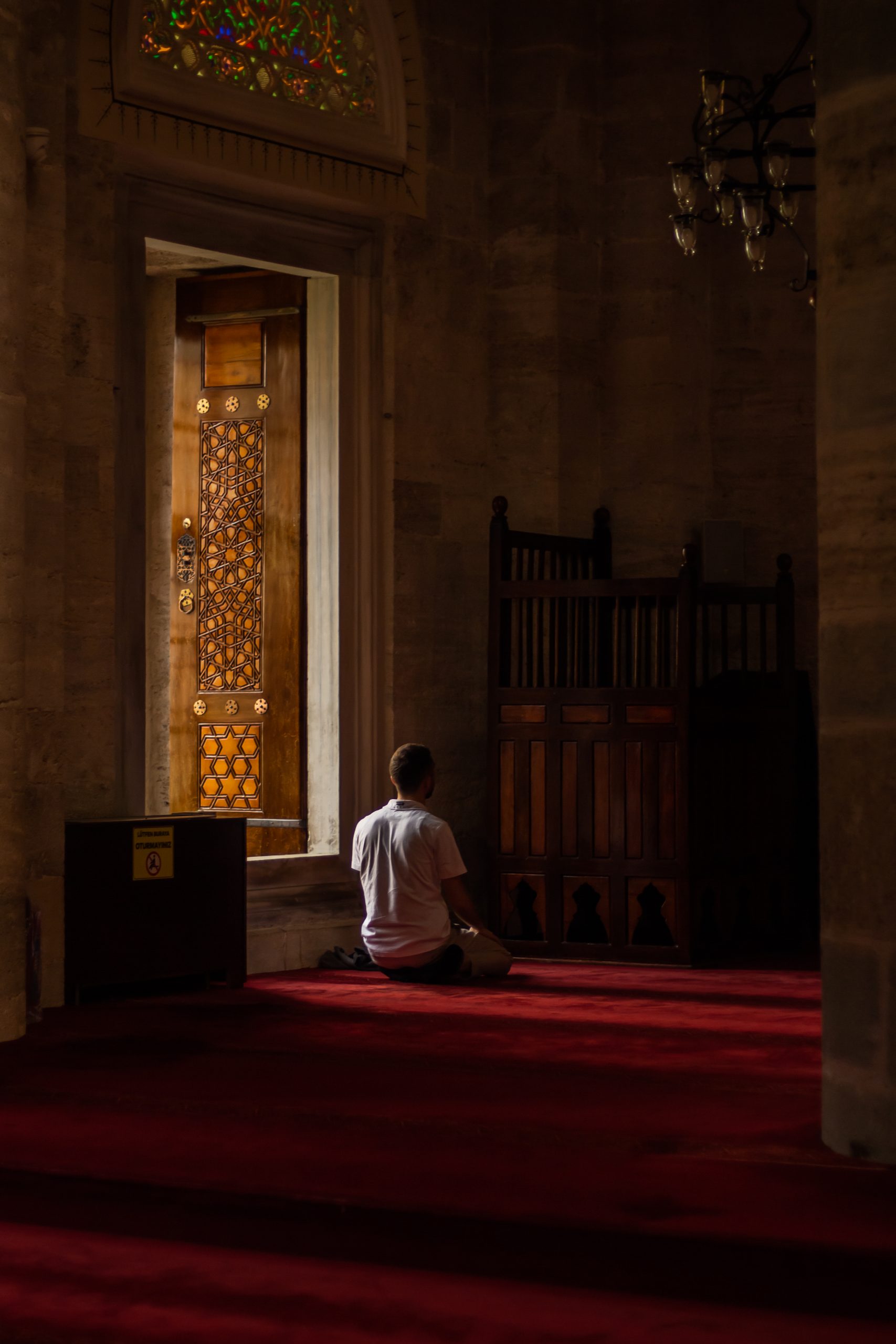In this article, we will explore the concept of a prenuptial agreement specifically applicable to Jehovah’s Witnesses. As you delve into the details, you will gain a comprehensive understanding of the unique considerations and elements that shape such agreements within this religious community. By examining the relevant factors and exploring the specific requirements, you will be better equipped to make informed decisions, ensuring that your prenuptial agreement not only aligns with your personal beliefs but also protects your interests. With this knowledge in hand, you can confidently approach a lawyer who specializes in prenuptial agreements for Jehovah’s Witnesses, to navigate the legal complexities and have a personalized document drafted to meet your specific needs.
Prenuptial Agreement Jehovah’s Witnesses
1. Background of Prenuptial Agreements
1.1 Definition and Purpose
A prenuptial agreement, commonly known as a prenup, is a legally binding contract entered into by a couple before their marriage or civil partnership. Its purpose is to establish guidelines regarding the division of assets, debts, and other financial matters in the event of divorce, separation, or death.
1.2 Historical Context
The concept of prenuptial agreements dates back to ancient times when dowries and bride prices were common. However, it wasn’t until the 19th century that prenuptial agreements gained recognition in legal systems worldwide.
1.3 Increase in Popularity
In recent years, prenuptial agreements have become increasingly popular among couples, including those with strong religious beliefs. The growing recognition of individual autonomy and the desire to protect individual assets are often cited as reasons contributing to their popularity.
2. Jehovah’s Witnesses and Marriage
2.1 Beliefs and Practices
Jehovah’s Witnesses, a Christian denomination, hold marriage in high regard as a sacred institution ordained by God. They believe that marriage is a lifelong commitment and discourage divorce except in cases of marital unfaithfulness or abandonment.
2.2 Importance of Marriage
For Jehovah’s Witnesses, marriage is not only a legal contract but also a religious covenant. It signifies a commitment to one another and to God, as they believe that the marriage vow is made before Him. As such, any decisions regarding a prenuptial agreement require careful consideration within the framework of their faith.
2.3 Determining Factors for Prenuptial Agreements
While Jehovah’s Witnesses place a strong emphasis on the permanence of marriage, they recognize that individuals may have specific financial considerations or concerns that warrant the consideration of a prenuptial agreement. These factors may include significant differences in wealth, complex financial situations, or the need to protect certain assets that are of personal or sentimental value.

3. Understanding Prenuptial Agreements
3.1 Definition and Scope
A prenuptial agreement is a comprehensive legal document that outlines the financial rights and obligations of each spouse in the event of divorce, separation, or death. It typically addresses the division of property, spousal support, and allocation of debts.
3.2 Key Components
A prenuptial agreement usually includes provisions related to the identification and characterization of assets, debt allocation, property division, spousal support, and the establishment of procedures for dispute resolution. These components are tailored to the specific needs and circumstances of the couple.
3.3 Legal Requirements
To be enforceable, a prenuptial agreement must meet certain legal requirements, which may vary depending on the jurisdiction. Generally, these requirements include full disclosure of assets and liabilities, voluntary and uncoerced consent of both parties, and the absence of any unconscionable terms.
4. Legal Validity for Jehovah’s Witnesses
4.1 Compliance with Religious Beliefs
For a prenuptial agreement to be considered valid within the Jehovah’s Witnesses community, it must adhere to the principles and teachings of the faith. This means that it should not contradict or undermine the sacred nature of marriage or compromise the individuals’ commitment to serving God and their congregation.
4.2 Applicability of Secular Laws
While prenuptial agreements are primarily governed by secular laws, Jehovah’s Witnesses may also seek guidance from their religious teachings when entering into such agreements. However, it’s important to keep in mind that the ultimate legal validity of a prenuptial agreement depends on the applicable laws in the specific jurisdiction.
4.3 Role of Elders and Congregation
In matters relating to prenuptial agreements, Jehovah’s Witnesses often consult with their local congregation elders or appointed representatives. These individuals provide spiritual guidance and help ensure that the decision to pursue a prenuptial agreement aligns with the teachings and principles of the faith.
5. Reasons for Considering a Prenuptial Agreement
5.1 Protecting Individual Assets
One common reason for Jehovah’s Witnesses to consider a prenuptial agreement is to protect individual assets acquired before the marriage. By outlining specific property rights and asset distribution, a prenuptial agreement can help safeguard personal wealth and investments.
5.2 Addressing Potential Debt
In some cases, one or both individuals in a Jehovah’s Witness marriage may have existing debts. A prenuptial agreement can establish how these debts will be allocated in the event of a divorce or separation, preventing one spouse from assuming the other’s financial liabilities.
5.3 Ensuring Financial Security
By setting forth provisions for spousal support and asset division, a prenuptial agreement can provide financial security for both parties in case of divorce or separation. This can help ease potential financial burdens and uncertainties that may arise during such circumstances.
5.4 Establishing Expectations
A prenuptial agreement allows the couple to openly discuss and establish their expectations regarding financial matters, including property rights, asset management, and future financial responsibilities. This can lead to better communication and a clearer understanding of each other’s financial goals.
5.5 Mitigating Conflict
In the unfortunate event that a marriage ends in divorce or separation, a prenuptial agreement can contribute to minimizing potential conflicts and legal disputes by establishing clear guidelines for asset division and financial obligations. This can help pave the way for a more amicable and efficient resolution.
6. Steps to Initiate a Prenuptial Agreement
6.1 Open and Honest Communication
Before embarking on the process of creating a prenuptial agreement, it is crucial to have open and honest communication with your partner. Discuss your reasons for considering a prenup, clarify expectations, and ensure that both parties are willing to engage in the process.
6.2 Timely Initiation
It is recommended to initiate discussions and negotiations for a prenuptial agreement well in advance of the wedding date. This allows ample time for thoughtful consideration, gathering necessary financial information, and consulting with appropriate professionals, if needed.
6.3 Seeking Legal Advice
Due to the legal complexities of prenuptial agreements, it is advisable to seek the guidance of an experienced family law attorney who understands the unique considerations of Jehovah’s Witnesses. They can provide legal advice, explain the implications of certain clauses, and ensure that the agreement meets legal requirements.
6.4 Considering Mediation Services
In cases where the couple encounters decision-making challenges or differing opinions during the prenuptial agreement process, mediation services can be beneficial. A professional mediator can help facilitate productive discussions and negotiations, ensuring that both parties have an opportunity to express their concerns and reach mutually agreeable terms.

7. Counseling and Mediation
7.1 Role of Pre-marital Counseling
Given the significance of marriage within the Jehovah’s Witnesses faith, pre-marital counseling can play a valuable role in the prenuptial agreement process. Pastoral or professional counseling provides couples with a safe space to discuss their expectations, values, and concerns, fostering a deeper understanding of one another and potentially facilitating the development of a prenuptial agreement that aligns with their shared beliefs.
7.2 Benefits of Mediation
Mediation can be a valuable tool for couples navigating the complexities of prenuptial agreements. A trained mediator helps facilitate open and respectful communication, guiding the couple towards mutually beneficial resolutions. This process can lead to greater satisfaction and a stronger sense of ownership over the final prenuptial agreement.
7.3 Collaboration with Elders or Church Leaders
Jehovah’s Witnesses often involve their congregation elders or appointed representatives in important decisions, including those related to prenuptial agreements. The guidance and support offered by these individuals can provide valuable perspectives and help ensure that the couple’s decisions align with the principles and teachings of the faith.
8. Drafting a Prenuptial Agreement
8.1 Lawyer’s Involvement
The legal intricacies of drafting a prenuptial agreement necessitate the involvement of a qualified attorney. A skilled family law attorney familiar with the beliefs and practices of Jehovah’s Witnesses can guide the couple through the drafting process, ensuring all necessary provisions are included and addressing any concerns related to their faith.
8.2 Customization as Per Beliefs
One advantage of involving a lawyer in the prenuptial agreement process is the ability to customize the agreement to align with the couple’s religious beliefs. A knowledgeable attorney can help tailor specific clauses to address concerns related to the sacred nature of marriage and any potential conflicts with the couple’s faith.
8.3 Clarity and Unambiguous Language
A well-drafted prenuptial agreement should be clear, concise, and free of any ambiguity. It is essential to use straightforward language that is easily understood by both parties, ensuring that the agreement accurately reflects their intentions and prevents future misunderstandings or disputes.

11. Enlisting the Help of a Lawyer
11.1 Finding a Suitable Lawyer
When seeking legal assistance for the creation of a prenuptial agreement, it is important to find a lawyer who is not only knowledgeable in family law but also respectful and understanding of Jehovah’s Witnesses’ beliefs and practices. The lawyer should be able to provide guidance that aligns with the couple’s faith and values.
11.2 Lawyer’s Role and Responsibilities
A lawyer’s primary role in the creation of a prenuptial agreement is to guide the couple through the legal process, ensuring compliance with relevant laws and requirements. They will provide legal advice, offer solutions to complex issues, and advocate for their client’s best interests, while remaining respectful of the couple’s religious beliefs.
11.3 Reviewing and Finalizing the Agreement
Once the prenuptial agreement is drafted, it is essential to thoroughly review its contents before signing. A lawyer plays a crucial role in reviewing the agreement, explaining its implications, and addressing any questions or concerns that may arise. Only after the document has been reviewed and finalized should both parties sign it, making it legally binding.
In conclusion, a prenuptial agreement can be a valuable tool for Jehovah’s Witnesses who wish to protect their assets, establish expectations, and ensure financial security within the context of their faith. By understanding the background, legal requirements, and considerations specific to Jehovah’s Witnesses, couples can make informed decisions and approach the prenuptial agreement process with confidence. Seeking advice from knowledgeable professionals, including family law attorneys and pastoral counselors, can provide the necessary support throughout this significant and often sensitive endeavor.